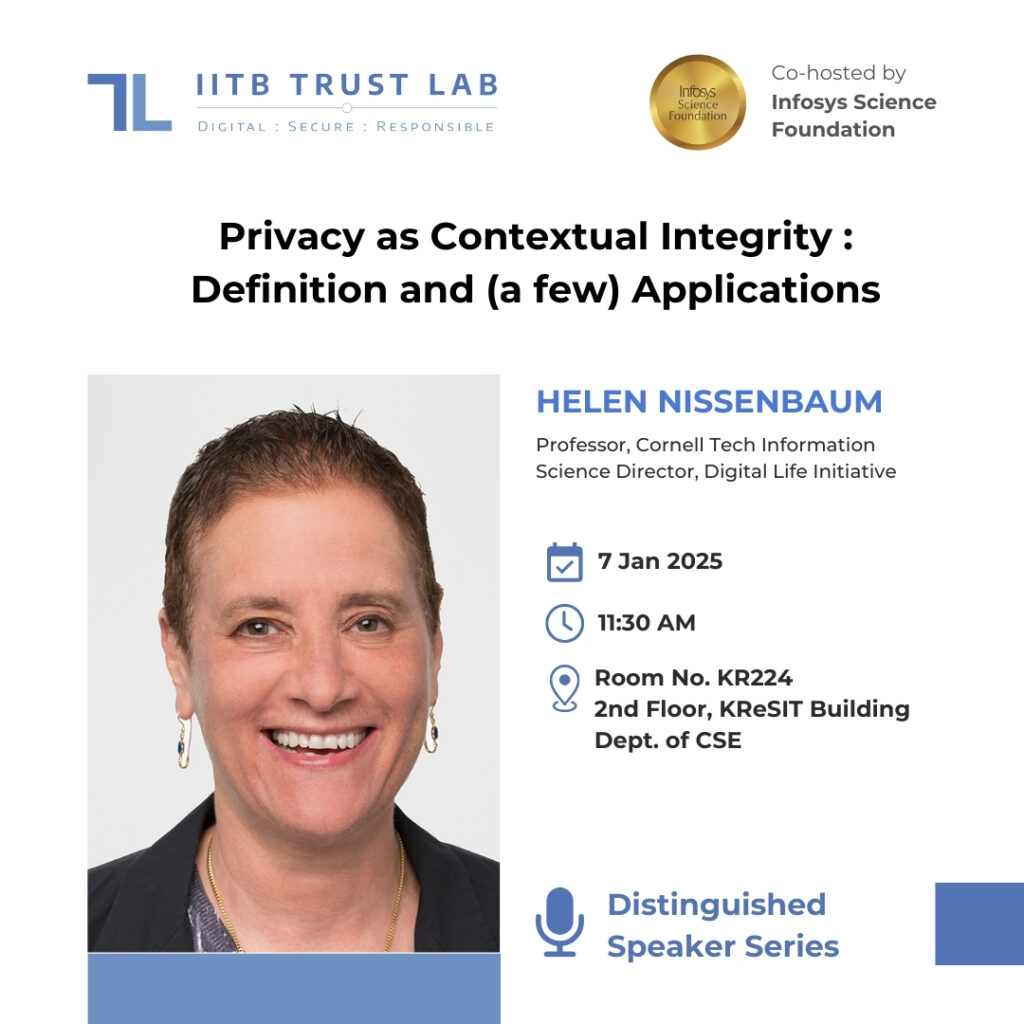The talk is co-hosted by the Infosys Science Foundation.
Privacy as Contextual Integrity: Definition and (a few) Applications
Talk Abstract
Contextual Integrity (CI) is a different way of defining privacy – not as secrecy and not as control over personal information but as appropriate flow. It answers an urgent societal need for a definition that is meaningful, explains why privacy is ethically compelling, and points to how we may protect it through law, regulation, and technology. My talk will review key theoretical ideas behind contextual integrity, show evidence of its empirical robustness, and provide a few examples of applications in technical work.
Tuesday | 7th January 2025 | 11:30 AM | KR 224

Helen Nissenbaum is the Andrew H. and Ann R. Tisch Professor of Information Science and the founding director of the Digital Life Initiative at Cornell Tech. Her research spans issues of bias, trust, security, autonomy, and accountability in digital systems, most notably, privacy as contextual integrity. Professor Nissenbaum’s publications include the books Obfuscation: A User’s Guide for Privacy and Protest, with Finn Brunton (MIT Press, 2015), Values at Play in Digital Games, with Mary Flanagan (MIT Press, 2014), and Privacy in Context: Technology, Policy, and the Integrity of Social Life (Stanford, 2010). These, along with numerous research articles, have been translated into seven languages, including Polish, Chinese, and Portuguese. She received the 2014 Barwise Prize from the American Philosophical Association and the IACAP Covey Award for computing, ethics, and philosophy. Professor Nissenbaum has also contributed to privacy-enhancing free software, such as TrackMeNot (designed to prevent the profiling of web search histories) and AdNauseam (designed to counter profiling based on ad clicks). She holds a Ph.D. in philosophy from Stanford University and a B.A. (Hons) in Philosophy and Mathematics from the University of the Witwatersrand, South Africa.

